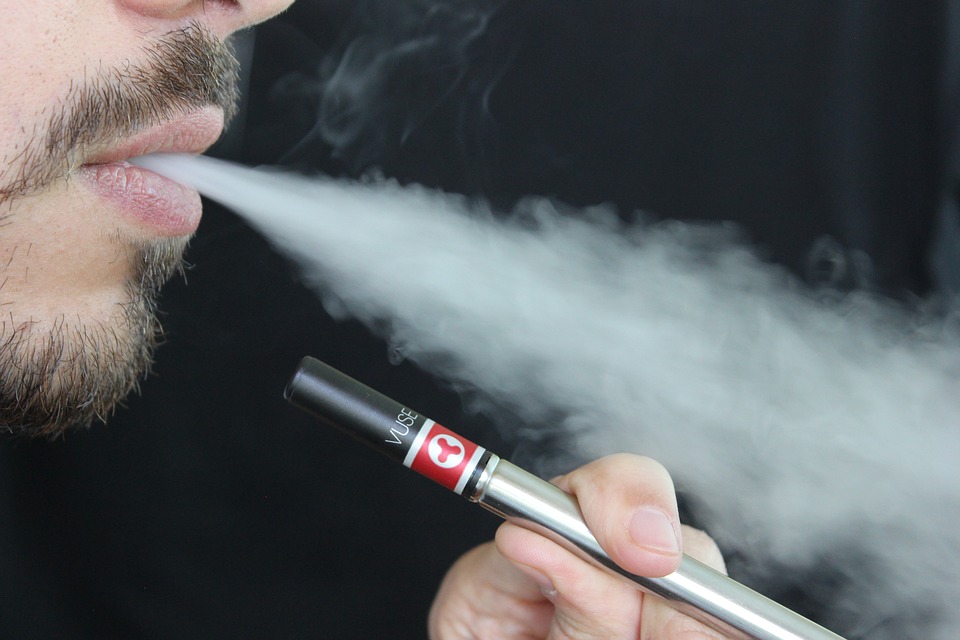Community
MA Public Health Council Approves Regulations Restricting Access to Vaping and Tobacco Products

BOSTON (December 11, 2019) —The state’s Public Health Council today approved new regulations that restrict the sale of nicotine vaping and flavored vaping and tobacco products. This action follows the Legislature’s passing and Governor Charlie Baker’s signing into law An Act Modernizing Tobacco Control, which provided the Massachusetts Department of Public Health with additional authority to regulate access to tobacco and electronic nicotine delivery systems, including vapes. With today’s actions, the Governor’s temporary statewide ban on the sale of vaping products in place since September is no longer in effect.
Effective immediately, the new law places the following restrictions:
1) The sale of non-flavored nicotine vaping products (with a nicotine content of less than 35 milligrams per milliliter) is restricted to stores licensed to sell tobacco products, such as convenience stores, gas stations, and other retail outlets.
2) The sale of non-flavored nicotine vaping products (with a nicotine content over 35 milligrams per milliliter) is restricted to licensed, adult-only retail tobacco stores and smoking bars.
3) The sale and consumption of all flavored nicotine vaping products may only occur within licensed smoking bars.
“Massachusetts has taken important steps to protect its residents from the emerging public health risk posed by vaping products, and with the new law signed by Governor Baker and the introduction of today’s regulations, we continue to prioritize actions that protect the public health,” said Public Health Commissioner Monica Bharel, MD, MPH. “As a physician and commissioner of the Department of Public Health, I continue to recommend that people not use any e-cigarette or vaping products, as these products are not safe. The new law expands the availability of smoking cessation resources through insurance, and DPH continues to remind people that help is available through a variety of tools.”
Beginning June 1, 2020, the sale of flavored combustible cigarettes and other tobacco products, including menthol cigarettes and flavored chewing tobacco, will be restricted to licensed smoking bars where they may be sold only for on-site consumption. Also taking effect on June 1st is the addition of a 75 percent excise tax on the wholesale price of nicotine vaping products, in addition to the state’s 6.25percent sales tax.
The new regulations lay out a roadmap for the implementation of the new law, including enforcement authority, penalties for non-compliance, legal signage, and advertising requirements.
The regulations which are effective today:
· Require posting of signage in any location where vaping products are sold to warn customers of the dangers of severe lung disease associated with vaping products and more generally advising them of the health risks of vaping.
· Specify the Commissioner’s authority to prohibit the sale of a designated vaping product on a determination that the product causes an imminent danger to public health.
· Strengthen state and local enforcement, specifying procedures by which DPH or local Boards of Health may inspect retail locations and the products they are selling for compliance with the law, and providing for penalties for violations, ranging from $1,000 for the first violation to $5,000 for three or more violations,.
· Establish how retailers and manufacturers must comply with the law’s requirement that vaping products with nicotine content of more than 35 mg/ml may only be sold in 21+ establishments.
· Require vaping products to be placed behind the counter in all non-age restricted retailers (e.g., convenience stores).
A public hearing on the regulations will be scheduled within the next 90 days.
Massachusetts clinicians are still required to report to DPH any individual experiencing vaping-related health problems and to ask patients to retain any vaping devices and products for possible testing by the federal Food and Drug Administration.
To date, DPH has reported 93 cases (31 confirmed and 62 probable cases) to the US Centers for Disease Control and Prevention, including three deaths from vaping-associated lung injury.
The cause of e-cigarette or vaping-associated lung injury (EVALI) remains unknown and under investigation at both the state and federal level. The Department of Public Health recommends that people not use e-cigarettes or vaping products.
DPH continues to offer resources to help people quit through its Quitline at 1-800-QUIT-NOW or by visiting makesmokinghistory.org or Mass.gov/QuitVaping to connect to treatment. The Massachusetts Smoker’s Helpline (1-800-QUIT NOW) has doubled the availability of free over-the-counter nicotine replacement products from 4 weeks to 8 weeks, once a person receives counseling by phone.
Effective January 1st, 2020, Massachusetts commercial health insurance plans plus the Group Insurance Commission and MassHealth, must cover smoking cessation counseling and FDA-approved products such as gum, lozenges, or patches without cost-sharing.






You must be logged in to post a comment Login